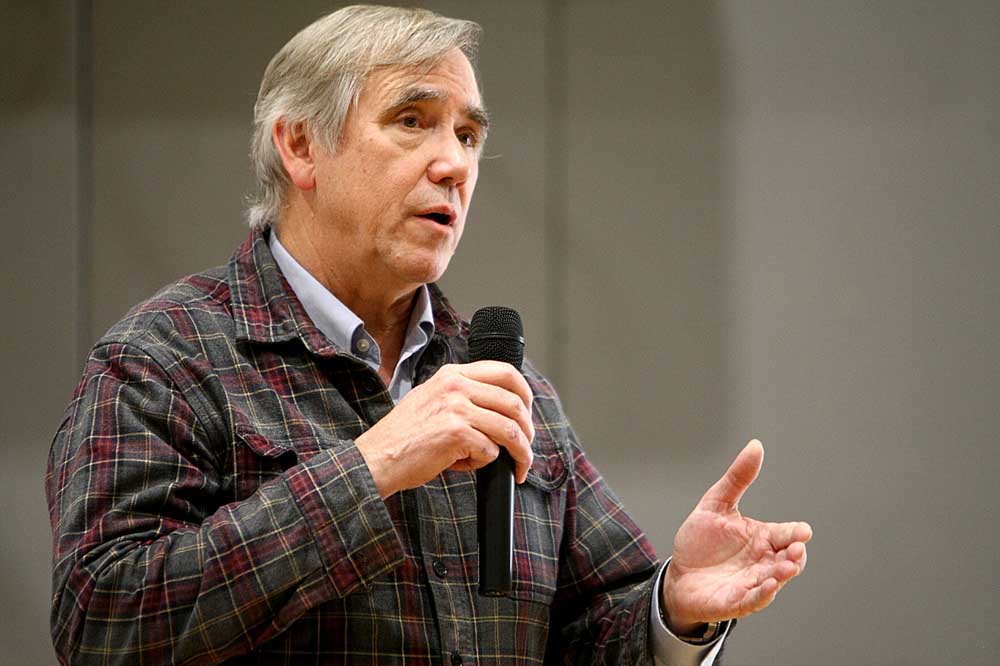Capital Chatter: Merkley White House run could cost him Senate
Published 8:00 am Thursday, December 6, 2018

- Capital Chatter: Dangerous times for the Oregon Legislature
Oregon Sen. Jeff Merkley might run for president in 2020. Or he might seek re-election to the U.S. Senate. In Oregon, he can’t do both.
State law prohibits seeking more than one “lucrative” office — one with a salary — at the same election. Merkley explored asking the Legislature to change the law, but he told me this week that the Oregon Senate was not inclined to make that change.
Trending
That forces Merkley into the “chaotic dance” of eventually deciding which office to pursue. He said his calculations on seeking the presidency change by the hour.
He focuses on three big issues: “corruption of our Constitution,” including gerrymandering, voter suppression and “dark money” in campaigns; thriving families, including health care, housing, education and living-wage jobs; and climate chaos, “which we must address now.”
“Those three big areas are so important to our future, so I’m asking the question, whether I can help advance taking those on better simply by staying exactly where I am or by throwing my hat into the (presidential) primary,” he said. “And I don’t have the answer on that yet.”
Merkley is keenly aware of the relevant dates. Oregon’s filing deadline to run for the Senate is March 10, 2020. By then, 14 states — including California — will have held their presidential primaries or party caucuses. He’ll know whether he has a legitimate shot at the presidency
He has made numerous trips to key states and contributed to several congressional campaigns or other races in those states.
As Politico reported in September: “Merkley has been recruiting, training and embedding staff on campaigns and in state parties. Merkley will then have those aides in his orbit as he weighs whether to go forward with a presidential campaign.”
Trending
I find this fascinating. In Oregon, Merkley is very much the junior senator to fellow Democrat Ron Wyden. Nationally, Merkley is a darling of the left. He stood alone among his Senate colleagues in endorsing Sen. Bernie Sanders‘ presidential bid in 2016.
Some states allow dual candidacies in their primary elections. Washington, California, Hawaii, Massachusetts and Ohio are among the states with similar restrictions to Oregon’s.
New Jersey last month changed its state law so someone — presumably Democratic Sen. Cory Booker — could simultaneously run for Congress and for president in the state’s primary election.
That tactic is not new. Sen. Lyndon Baines Johnson got Texas to change its law so he could seek re-election and also be J ohn F. Kennedy‘s vice presidential running mate in 1960. Unlike others who subsequently tried, Johnson won both offices.
Texas Sen. Lloyd Bentsen followed suit in 1988, gaining re-election while also being part of the ill-fated Michael Dukakis ticket that lost to George H.W. Bush and Dan Quayle.
Eighteen years ago, Connecticut Sen. Joe Lieberman ran for both re-election and as vice president. That double candidacy insinuated a lack of confidence that he and Democratic presidential candidate Al Gore would prevail. He was right.
And six years later, Lieberman he also lost his Senate re-election bid.
Oregonians running for president are a rarity, and Merkley said the question of dual candidacy had not arisen before.
In 1960, Sen. Wayne Morse, who was not up for re-election that year, briefly ran for president but lost to Kennedy in the Oregon Democratic presidential primary.
Dick Hughes, who writes the weekly Capital Chatter column, has been covering the Oregon political scene since 1976. Contact him at TheHughesisms@Gmail.com, Facebook.com/Hughesisms, YouTube.com/DickHughes or Twitter.com/DickHughes.





